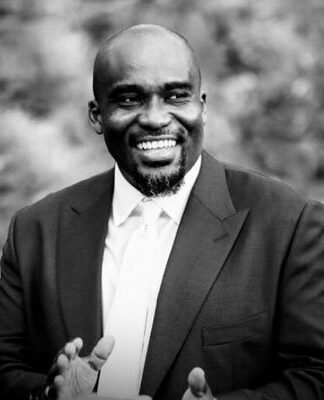On 8 August, the Rwandan government directed a temporary confiscation of the multi million dollar Union Trade Centre (UTC) owned by business magnet Tribert Rujugiro Ayabatwa and subsequent freezing of all business accounts allegedly to facilitate “ongoing criminal investigations”. Although Kigali authorities have set tomorrow for the final meeting to announce its decisions, the UTC spokesperson, Dr David Himbara, says the businesses fate has already been sealed. He talked to a Daily Monitor correspondent in an exclusive interview in Johannesburg, South Africa on Monday. Excerpts.
Give us background on the Union Trade Centre as an investment in Rwanda?
The Union Trade Centre was incorporated as a limited liability company in 2004 and became operational in 2006. The official opening of the mall was presided over by the President of Rwanda (Paul Kagame) given its importance of launching as a substantive investment by domestic entrepreneurs. Since then, the UTC has become the premier business hub in Kigali for doing business, housing over 80 companies and over 400 Rwandans earn a living from this.
But the government says its actions are to facilitate criminal investigations?
This is the biggest puzzle that has everyone scratching our heads because it just does not make sense. Firstly, Mr Tribert Rujugiro Ayabatwa, the principal shareholder in the business, has not appeared in the court so that he can address the allegations whatever they are because we don’t know.
Secondly, under the Rwandan Constitution and company law, an incorporated company is a separate legal entity from its shareholders and uptodate UTC is a good corporate citizen that pays tax and is duly registered as a genuine at the Rwandan Development Board as required by law. The mixing of the operations of the mall and the affairs of its individual shareholders is illegal and breaks all legal norms and regulations pertaining to protection of private investments in Rwanda.
The government also insists that Mr Rujugiro is operation out of the country, which justifies taking over the business?
Well, this is the point I was driving to that is more shocking, namely the legal instrument the government of Rwanda has chosen to hijack UTC. The government has chosen to use the 2004 law regarding management of abandoned properties. This is why it is the commission of abandoned properties that is handling this case supported by the Rwanda National Prosecuting Agency. Through this law the Rwanda government is claiming that the UTC is abandoned because Mr Rujugiro does not reside in Rwanda. Can you imagine Microsoft Corporation being seized in Britain because Bill Gates does not reside in the UK?… Where Rujugiro and other shareholders reside is irrelevant in this case.
So why do you think the government is driving into that direction of taking multi million dollar investment?
I would advance two possible explanations for the government of Rwanda’s absurd actions. Firstly, as most may not be aware, the ruling party in Rwanda (Rwanda Patriotic Front) is the largest business group in the country dominating almost all sectors and hates completion. Its own mall, the Kigali Towers, has failed to attract customers. A destabilised UTC clears the way for the ruling party’s Crystal Ventures to enjoy monopoly.
Secondly, the government needs cash injections since donor funding was withheld last year. The government has resorted to drawing down its foreign reserves that currently cover less than three months of imports. Rwanda is in dire economic and financial straits.
What is the likely financial implications to the UTC investors, including Mr Rujugiro if Kigali goes ahead to confiscate this enormous asset?
Of course, we are talking about $20 million (Shs50b) investment here. Nevertheless, as you may be aware, Mr Rujugiro is a highly successful pan-Africa industrialist operating and trading across sub-Sahara Africa and even beyond. In the broader realm of things, his investment in Rwanda is tiny and only significant in emotional sense of wanting to assist his desperately poor native country to transform its largely informal business into formal private sector. The main loser here is Rwanda. And of course UTC mall does not have wheels – it will sooner or later revert to its owners whenever a law abiding government in Rwanda comes along. Beyond this UTC crisis, Rwanda’s reputation as a serious investment destination will be shattered.
But World Bank reports have consistently shown that the country is on the right track in the area of doing business?
We must distinguish between bureaucratic reforms versus reality on the ground. It is true that you can register in a short time in Rwanda compared to her neighbours, but this does not translate into security and protection of private investment in a country whose ruling party is a biggest private sector operator itself. The reality is that Rwanda draws the least foreign direct investment in East Africa a filed currently led by Tanzania, Uganda and Kenya in that order. Rwanda does better than only Burundi. Investors are not persuaded by doing business indicators in Rwanda because it is a very unpredictable country.
Now that Mr Rujugiro is a marked man, what happens to his business interests in Rwanda?
Mr Rujugiro has invested in several areas in Rwanda, including tea and real estate. He is also one of the leading philanthropists supporting schools…Among his corporate social responsibilities was his plan of building a stadium in hometown Nyanza and the project has already started. These actions…puts the continuity of these projects in suspense.
Source: Daily Monitor, 28 August 2013






























































